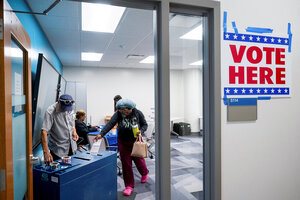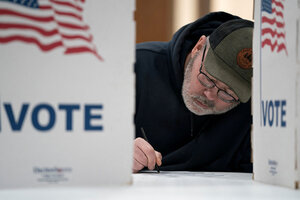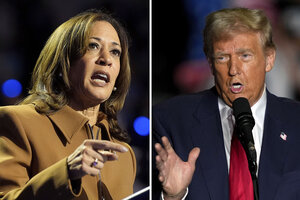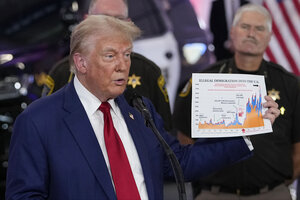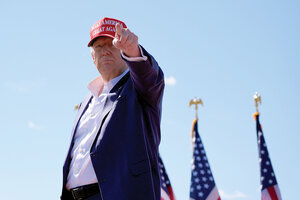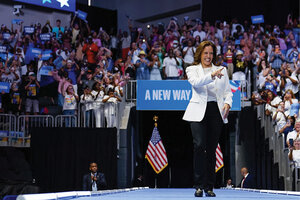Do presidential debates really matter? What history shows.
President Joe Biden and former President Donald Trump meet head-to-head Thursday at CNN’s Atlanta studios for their first debate of the 2024 campaign season. The televised debate comes months earlier than those of previous presidential election seasons.
There will be no live audience. The microphone of the candidate not meant to be speaking will reportedly be muted. The event will be history-making: It was not organized by the bipartisan Commission on Presidential Debates, which has managed debates since the 1988 presidential election.
Will sparks fly? Perhaps. Debates have produced iconic moments in American politics, from the seven epic Lincoln-Douglas debates in 1858, to the televised drama of Kennedy-Nixon in 1960, to the zingers that pass as takeaways in the debates of our times.
Here are six questions about presidential debates, which Gail Russell Chaddock posed as podcast host to veteran Washington reporter Peter Grier, who retired this month. This Q&A is derived from our 2023 podcast interview from around the time of the GOP primary debates. It has been updated, edited, and condensed.
Do debates matter?
In general, debates don’t matter that much for presidential votes. Debates are important in inverse proportion to the importance of the office. So, for instance, in presidential debates, most voters know already who they’re leaning to vote for because of political polarization. But if you get down to, say, congressional seats, they may not know as much about members of Congress, and so they learn more about the individual candidates. Presidential primaries can have large fields of candidates. Voters may not know a lot about each one, and so there is an opportunity for a candidate to say something, or to act in a way that sticks in voters’ minds and makes them think more positively about them.
Can winning a debate win elections?
Losing a debate can lose elections. That is part of the problem for those who participate in them. So for instance, you can, as President Gerald Ford did, suddenly “free Poland” in a 1976 debate, accidentally saying it was a free country. And that can be a mistake that the press harps on. But that brings up a point in that it is often the press coverage of debates that matters more than the debates themselves. With Gerald Ford, the press hit on this as a means to say: “Well, Gerald Ford, a nice guy, not really up to the mental demands of the office.”
Take the flip case: Can a comment in a debate make a career?
Well, a comment in a debate can make a career, but it doesn’t necessarily win an election. For instance, in the vice presidential debate between Lloyd Bentsen and Dan Quayle, Lloyd Bentsen had the well-remembered line: “I served with Jack Kennedy. I knew Jack Kennedy. Jack Kennedy was a friend of mine. Senator, you’re no Jack Kennedy.” I can quote it to you almost verbatim. Yet, of course, Lloyd Bentsen and presidential candidate Michael Dukakis lost that election.
What do we actually learn about politicians from watching them in a debate setting?
Well, you can learn a lot. Often a debate will pin them down on a position, and they’ll say it in public perhaps for the first time. What can happen is that the answer will provide a baseline for them to actually act upon if they win. That’s an important side effect of debates and really one of their most substantive outcomes nowadays. Debates can just be interesting studies of human behavior. There are bright lights and some debate moderator peering down from on high. And it’s important to learn how a candidate would behave under such pressure.
Are there any debates in recent American history that you see as especially significant?
I think some of the debates that former President Donald Trump has been involved in have been significant. They did sway at least a few votes. Much of that has to do with Mr. Trump’s behavior in them, as much as anything that he said. For instance, with Hillary Clinton, he ... physically followed her around the stage in a way that some people may have seen as an exertion of dominance, but many others saw as creepy.
Do you see debates as a good indicator of a candidate’s state of mind?
I’d say not really. They’re good evidence of candidates’ performative skills. But I’m also a believer in the axiom that there is no such thing as authenticity in politics. There are only different levels of inauthenticity. In that sense, we’re not ever going to really know their actual state of mind. We know their public state of mind, the way they’d like to present themselves to the voters.






